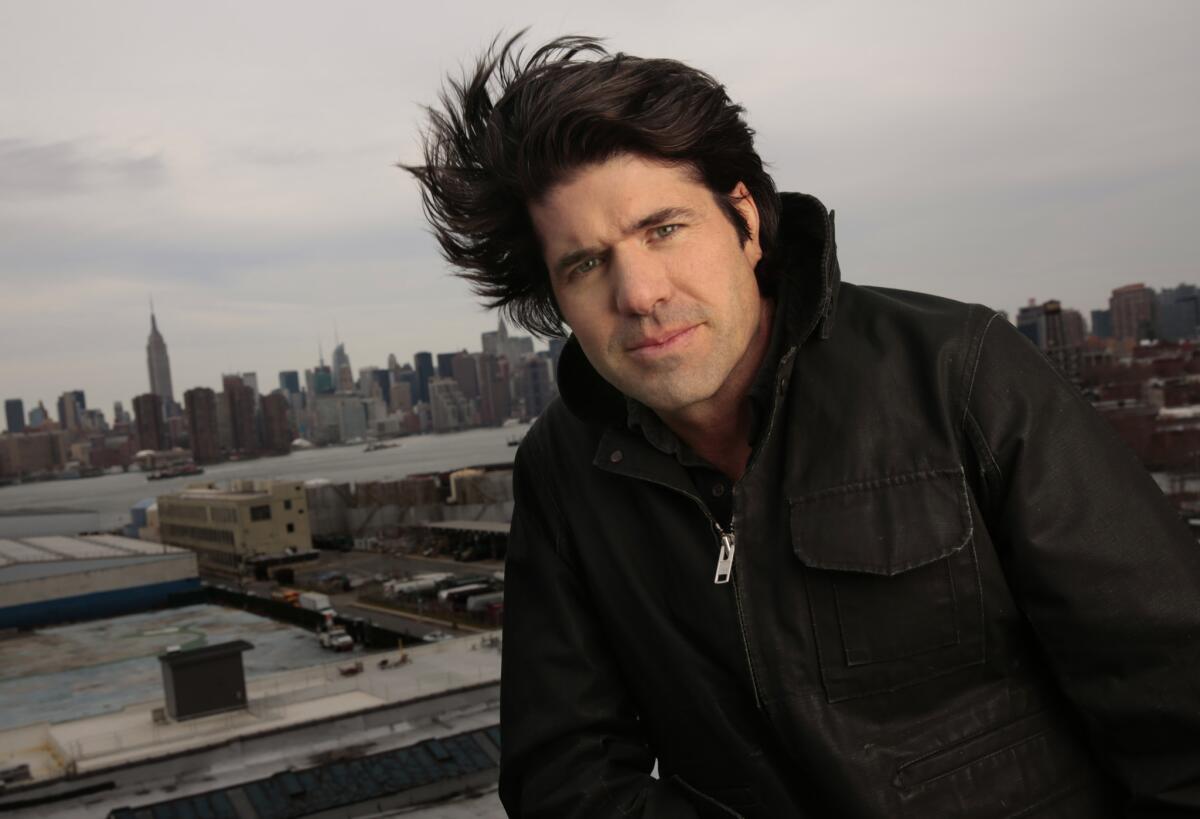‘Most Violent Year’s’ J.C. Chandor on the Sidney Lumet link

Film critic Roger Ebert once described Sidney Lumet as “one of the finest craftsmen and warmest humanitarians among all film directors.” He was an actor’s director, known for eliciting nuanced, moving and daring performances and imbuing his films with a stark social realism.
Over his half-century career, Lumet directed such classics as 1957’s “12 Angry Men,” 1973’s “Serpico,” 1975’s “Dog Day Afternoon,” 1976’s “Network,” 1982’s “The Verdict” and 1988’s “Running on Empty.” By the time Lumet died in 2011 at age 86, he had been nominated four times for the Academy Award for director and once for adapted screenplay and had earned an honorary Oscar.
More recently, Lumet’s influence has fueled the films of writer-director J.C. Chandor, whose thriller “A Most Violent Year” opened on New Year’s Eve after winning the National Board of Review’s best film award.
Set in 1981 during one of New York’s most turbulent eras, “A Most Violent Year” revolves around an ambitious immigrant (Oscar Isaac) who tries not to get his hands dirty as he attempts to expand his heating oil company — and finds the task more difficult and dangerous than he anticipated. Adding to his woes are the machinations of his strong-willed wife (Jessica Chastain), the daughter of a Brooklyn mobster from whom he bought the company.
The gregarious Chandor, 41, said during a recent visit to Los Angeles that he’s flattered his film is being talked about in the same breath as Lumet’s work. But he doesn’t think that after just three films — “Margin Call” in 2011, “All Is Lost” in 2013 and now “A Most Violent Year” — he’s quite on Lumet’s level.
“He’s rolling over in his grave probably,” Chandor said with a laugh.
But it’s hard not to watch “A Most Violent Year” without recalling “Prince of the City,” Lumet’s gritty, acclaimed 1981 crime drama about a New York narcotics detective (Treat Williams) who reluctantly cooperates with a police corruption investigation only to discover he can’t trust anyone.
The protagonists of both films start off believing they are in control of the situation, but as events unfold they lose control and realize nothing is what it seems.
“There was a mainstream element to what he was doing,” Chandor said of Lumet. “The industry at the time supported a broad audience for films about real people dealing with real struggle. Everything is heightened a lot of the time, which is something I am putting my characters through, visiting them at this moment of heightened stress.” But there’s also wonderful clarity, “so they can see their whole life in front of them in a way. I think he is sort of the godfather of films about these sort of real people going through actual challenges we all face.”
Chandor first fell in love with movies watching them as a kid on HBO at his home in Basking Ridge, N.J.
“I am a suburban middle-class kid,” he said. “My mom’s a visual artist, and my dad was a midlevel investment banker. I started acting and getting into the arts and doing photography in high school.”
Then in his junior year he discovered Stanley Kubrick.
“I realized what an auteur was,” Chandor said. “It was very good that my first Kubrick film was ‘2001: A Space Odyssey.’”
Chandor said he saw a lot of Lumet films as a kid when they first came out. He got his first opportunity to see the director’s earlier work when he moved to New York City to attend film courses at NYU.
“There was a place called Kim’s Video, which was a famous video store,” Chandor said. “I got on a bent and I would pick a director and start at the beginning of their career and work my way through.”
Now the Lumet connection is coming full circle. After his visit to L.A., Chandor was flying back to New York for a screening of “A Most Violent Year” hosted by screenwriter Jenny Lumet (“Rachel Getting Married’), Sidney’s daughter.
“That will be a fun night,” Chandor said. “What’s sort of exciting for me is that I’m even getting to make these types of films in this day and age.”
Twitter: @mymackie
More to Read
Only good movies
Get the Indie Focus newsletter, Mark Olsen's weekly guide to the world of cinema.
You may occasionally receive promotional content from the Los Angeles Times.










